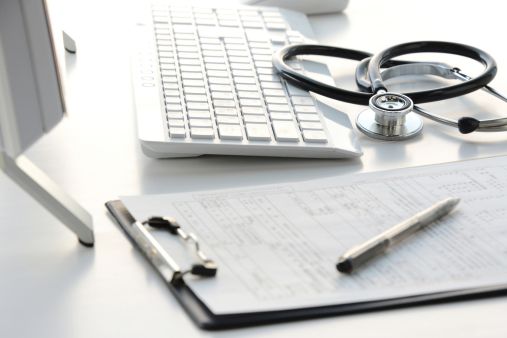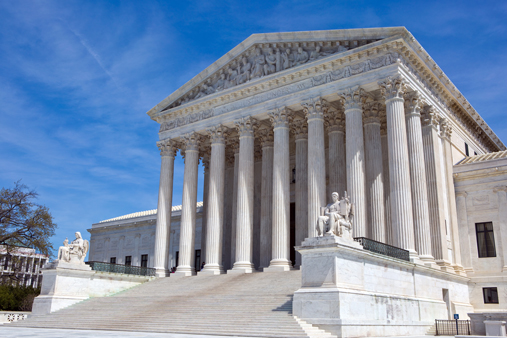In Medtronic Inc. v. Mirowski Family Ventures, LLC, No. 12-1128 (Jan. 22, 2014), the United States Supreme Court shifted the burden, literally, for patent licensees challenging the infringement of licensed patents. The Supreme Court ruled unanimously on Wednesday that when a licensee files a lawsuit challenging the infringement of a licensed patent, the patent owner, not the plaintiff licensee, bears the burden of proof on the infringement issue.
The Supreme Court’s decision overruled the Federal Circuit’s previous holding that the licensee bore the burden of proof on the infringement issue as the party challenging infringement and thus challenging the scope or validity of an executed license agreement. (Opinion below, 695 F.3d 1266 (Fed. Cir. 2012).) The Federal Circuit’s rule would have made it more difficult for licensees to prevail in declaratory judgment actions challenging the infringement of licensed patents.
The Supreme Court’s decision follows the Supreme Court’s 2007 holding in MedImmune Inc. v. Genentech allowing a licensee to file a declaratory judgment action challenging the validity or infringement of a licensed patent. 549 U.S. 118 (2007). In such cases, because the existence of a licensing agreement forecloses an infringement counterclaim, the potential outcome is a non-infringement finding as opposed to a typical infringement case that might result in a finding of infringement and monetary damages for the patentee.
The recent decision resulted from Medtronic’s lawsuit asserting that certain Medtronic products did not infringe licensed defibrillator patents owned by Mirowski Family Ventures, LLC. The district court concluded that the burden of proving infringement fell on Mirowski as the patent owner. But the Federal Circuit reversed, concluding that Medtronic as the declaratory judgment plaintiff bore the burden of proving non-infringement. The Supreme Court (Breyer, J., writing) overruled the Federal Circuit, finding that “[s]imple legal logic” dictated a holding that “the burden of persuasion is with the patentee, just as it would be had the patentee brought an infringement suit.” The Supreme Court rejected the argument that plaintiffs typically bear the burden of proof under the “ordinary default rule,” and emphasized the public’s interest in maintaining a "well-functioning patent system" and keeping “patent monopolies” to their “legitimate scope.”
The Supreme Court’s decision firmly casts the burden on the infringement issue in MedImmune-type declaratory judgment cases. The decision will significantly impact decisions on whether to pursue such actions. The decision will also be a factor in negotiations of licensing terms and decisions by patentees weighing the risks and benefits of licensing their patents.
For more information, contact the Barnes & Thornburg attorney with whom you work or member of the firm’s Intellectual Property Law Department in the following offices: Atlanta (404-846-1693), Chicago (312-357-1313), Columbus (614-628-0096), Elkhart (574-293-0681), Fort Wayne (260-423-9440), Grand Rapids (616-742-3930), Indianapolis (317-236-1313), Los Angeles (310-284-3880), Minneapolis (612-333-2111), South Bend (574-233-1171), Washington, D.C. (202-289-1313).
You can also visit us online at www.btlaw.com/intellectualproperty.
© 2014 Barnes & Thornburg LLP. All Rights Reserved. This page, and all information on it, is proprietary and the property of Barnes & Thornburg LLP. It may not be reproduced, in any form, without the express written consent of Barnes & Thornburg LLP.
This Barnes & Thornburg LLP publication should not be construed as legal advice or legal opinion on any specific facts or circumstances. The contents are intended for general informational purposes only, and you are urged to consult your own lawyer on any specific legal questions you may have concerning your situation.








/Passle/6488d4630e7e25c9ac9f834a/MediaLibrary/Images/2024-07-18-19-15-33-047-669969d52008239f764a11af.png)


/Passle/6488d4630e7e25c9ac9f834a/SearchServiceImages/2024-07-17-15-17-44-967-6697e0980752df56d2441ada.jpg)
